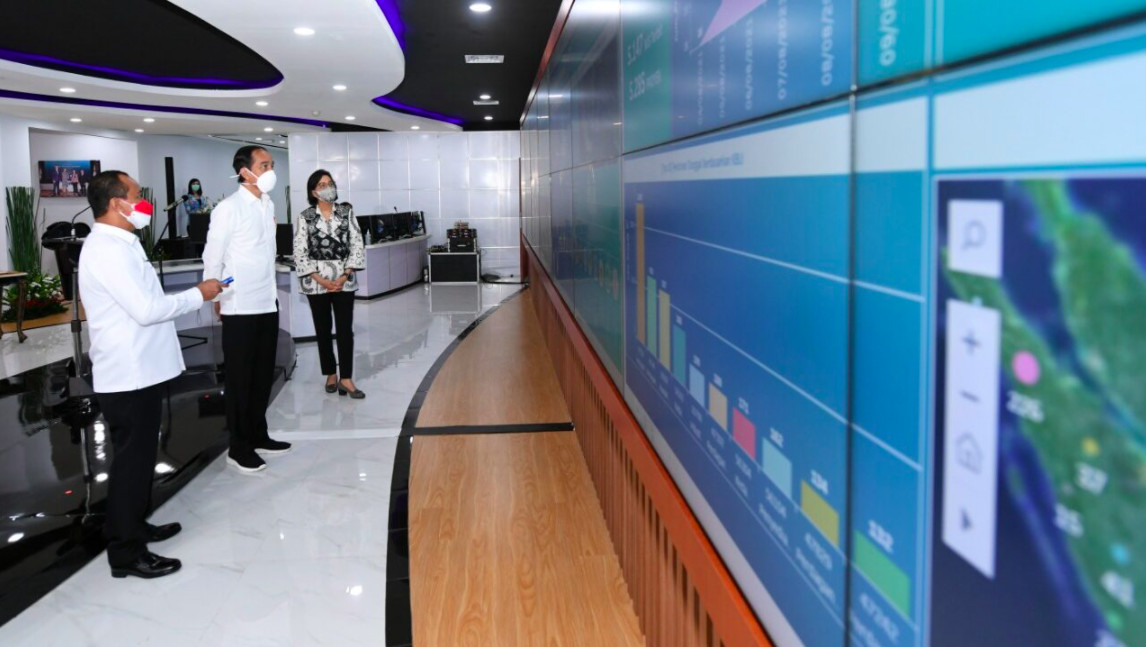Popular Reads
Top Results
Can't find what you're looking for?
View all search resultsPopular Reads
Top Results
Can't find what you're looking for?
View all search resultsThe economic report card
The major challenge for Jokowi over the next three years is phasing out the dominance of state companies in infrastructure development.
Change text size
Gift Premium Articles
to Anyone
E
ven though President Joko “Jokowi” Widodo’s government has failed to achieve an annual economic growth of 7 percent as he promised in his presidential campaign in early 2014, now entering the eighth year of his rule, the core of his economic policies have actually remained on the right path right from the outset.
He has focused his attention on making it easier for businesspeople to invest and do business, realizing from his experiences as a furniture producer and exporter that it is the business sector, and not the government, that creates jobs, which in turn generate purchasing power to propel the economic wheels.
Jokowi pledged in October 2014 to develop an integrated licensing system for businesses. Knowing that the country’s logistics system is one of the most inefficient in ASEAN, he closely monitored, sometimes through surprise inspection visits, Jakarta’s Tanjung Priok Port that handles more than 75 percent of Indonesian imports.
Put briefly, he has built physical connectivity through the massive development of basic infrastructure such as seaports and roads, and institutional connectivity through regulatory and bureaucratic reforms on top of his working programs, making significant progress on both fronts.
Jokowi has paid special attention to the important role of regional administrations in implementing government policies and meets annually with their leaders. He has addressed the yawning inequality between the urban and rural areas by sharply increasing budget allocations directly for village administrations for financing rural infrastructure. He has provided a lot of aid and incentives to micro, small and medium enterprises (SMEs) and promoted local products, though through an often criticized local-content requirement policy.
He prodded national businesses to improve their competition by signing a string of free trade agreements with Australia and the European Free Trade Association (EFTA) and, together under ASEAN, with China, Japan, South Korea, New Zealand and Australia.
Had it not been for the health crisis since March 2020 caused by the COVID-19 pandemic, the economy could have been able to grow higher than the average 5 percent rate achieved in 2015-2019 on the back of the expedited investment licensing and better physical connectivity between the various islands and from the country to the international market. Unfortunately, the economy contracted by 2.1 percent in 2020 and is estimated to muddle between 3 and 4 percent this year.
The major challenges for Jokowi in the next three years are phasing out the dominance of state companies in infrastructure development and wooing more foreign and domestic private investment.
Despite notable improvements, the President should constantly see to it that all the regulatory reforms, notably those stipulated in the 2020 Job Creation Law, the online-single submission (OSS) business licensing system and the Harmonized Tax Law, are properly implemented.










